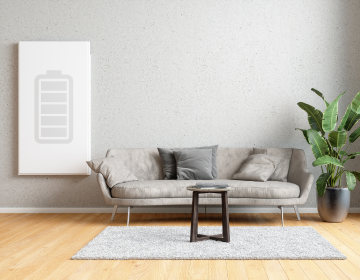Renting is now more expensive than buying in eight out of ten UK towns and cities.
The figure is up from 74% in July as asking prices have come down and rents have increased.
On average, rents are now 9.9% than mortgage payments.
Research by Zoopla compares current asking prices to average rents for two-bedroom flats in the 50 largest cities and towns around the country. Mortgage payments were calculated assuming an interest-only mortgage at 5% p.a.
In some locations, the extra cost of renting is staggering. In York, rents exceed mortgage payments by 39%: with average monthly rents at £978, York tenants are £3,270 a year worse off than if they were buying.
In a further 13 of the largest 50 cities and towns, rents exceed mortgage payments by more than 20%.
Even in London, which has the highest asking prices in the country, buying is still the more cost-effective option. The average rent of £2,121 per month is still high compared to the average asking price of £444,553, but buyers are better off than tenants by 14%.
However, there are still some locations where renting is a better option than buying. In Aberdeen, where the average two-bed flat costs £833 per month to rent versus £254,618 to buy, renting is 21% cheaper than the average mortgage payment.
Nicholas Leeming, Zoopla’s commercial director, said: “We’re seeing a real divide in the housing market. For those who are able to buy a home, costs are low, but for those who can’t, costs are much higher – and the doorway into the housing market is narrower than ever.
“The freezing up of credit has put home ownership beyond the reach of many renters, and it’s driving a larger and larger wedge between them and owner-occupiers.”
However, that situation would change sharply if interest rates were to increase by just 1%. Then, renting would become more cost effective in 72% of the locations studied.
Renting costs more than buying in most of Britain
19 November 2010









.png)



%20A%20property%20tale%20for%20our%20times.png)







Comments
Good luck getting a deposit if you don't have one.
And a 1% change in interest rates? Well yes, that would lead to a 20% increase in payments, something renters aren't exposed to much.